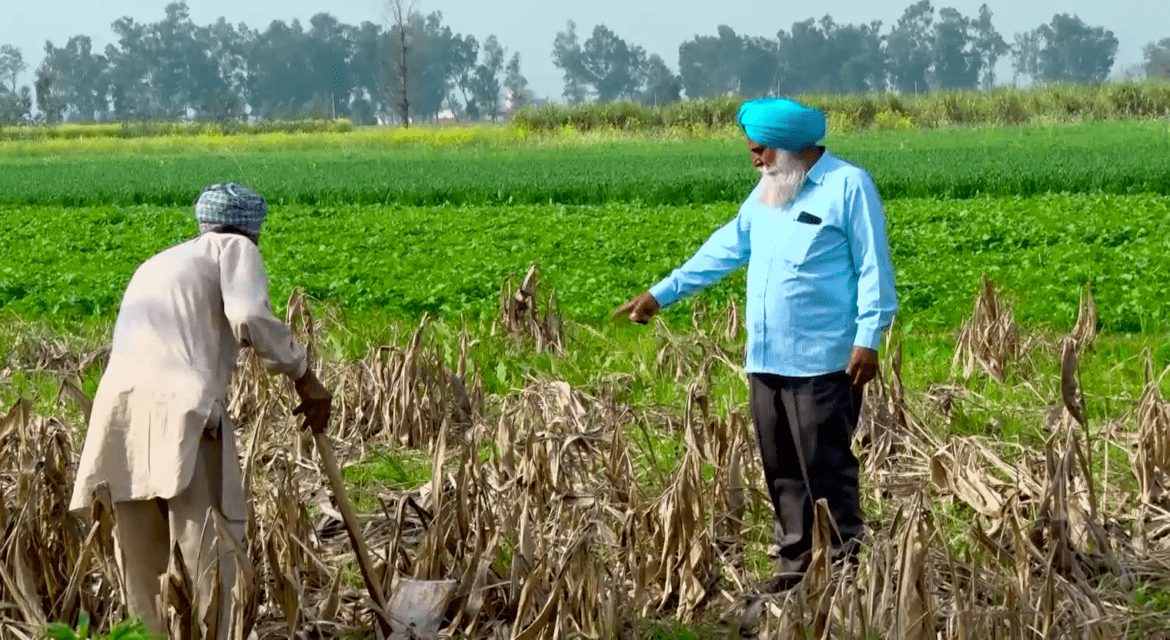AI Generated Summary
- The introduction of high-yielding varieties (HYVs) of paddy in the 1960s, coupled with government subsidies and a minimum support price (MSP), led to a significant increase in paddy cultivation in Punjab.
- In October 2023, the Supreme Court of India, in response to petitions seeking measures to address the air pollution crisis in Punjab, directed the state government to phase out paddy cultivation.
- The court emphasizes that the specific type of paddy grown in Punjab, along with the timing of its cultivation, is a major factor contributing to crop burning.
Punjab, the ‘Granary of India’, has long been renowned for its vast fields of paddy, a water-intensive crop that has played a pivotal role in the nation’s food security. However, the state’s reliance on paddy cultivation has come at a significant cost to the environment. The practice of crop burning, employed to clear paddy stubble after harvest, has become a major contributor to air pollution, particularly during the winter months.
The Supreme Court of India, recognizing the environmental concerns associated with paddy farming, has called upon the Punjab government to phase out the crop. This decision, while challenging, presents an opportunity for the state to embark on a sustainable agricultural transformation.
Historical Background of Paddy Cultivation in Punjab:
The introduction of high-yielding varieties (HYVs) of paddy in the 1960s, coupled with government subsidies and a minimum support price (MSP), led to a significant increase in paddy cultivation in Punjab. This shift transformed the state into a major producer of rice, contributing substantially to India’s food grain production.
However, the intensive cultivation of paddy has taken its toll on the state’s environment. The crop’s high water requirements have led to depletion of groundwater resources, while the practice of crop burning has contributed to severe air pollution, particularly during the winter months.
Supreme Court’s Directive to Phase Out Paddy Farming:
In October 2023, the Supreme Court of India, in response to petitions seeking measures to address the air pollution crisis in Punjab, directed the state government to phase out paddy cultivation. The court noted the environmental damage caused by paddy farming and emphasized the need for a sustainable agricultural model.
The Punjab government informed the Supreme Court that addressing the issue of crop burning in the state may be possible by gradually phasing out paddy cultivation. They propose achieving this by reducing incentives for paddy cultivation and encouraging farmers to grow alternative crops. This recommendation is motivated by the fact that Punjab’s water table has been declining significantly due to paddy cultivation, even though the crop is not extensively consumed within the state.
The Supreme Court has endorsed this proposal and has urged the central government to explore the idea of providing a minimum support price (MSP) for alternative crops instead of paddy. Furthermore, the court has drawn attention to the misuse of MSP in Punjab, where paddy from neighboring states is brought into Punjab to claim MSP benefits.
The court emphasizes that the specific type of paddy grown in Punjab, along with the timing of its cultivation, is a major factor contributing to crop burning. It questions whether this particular type of paddy should be grown at all, particularly in Punjab, given the persistent problems associated with it.
Additionally, the court has advised Punjab to examine the provisions of the Punjab Preservation of Subsoil Water Act, 2009, which was enacted to conserve groundwater. However, the act’s requirement to delay transplanting paddy until after June 10 has created a narrow timeframe for farmers to harvest paddy and prepare the soil for wheat crops. This tight schedule has led to the practice of stubble burning as a means to clear the fields.




